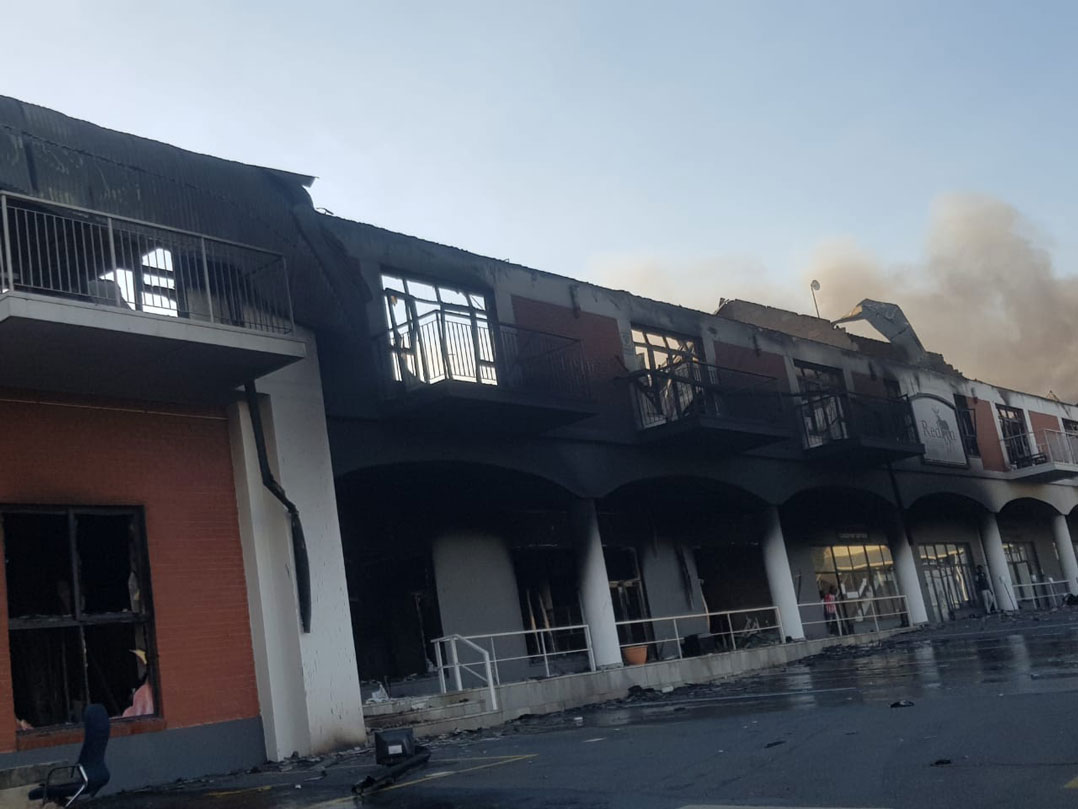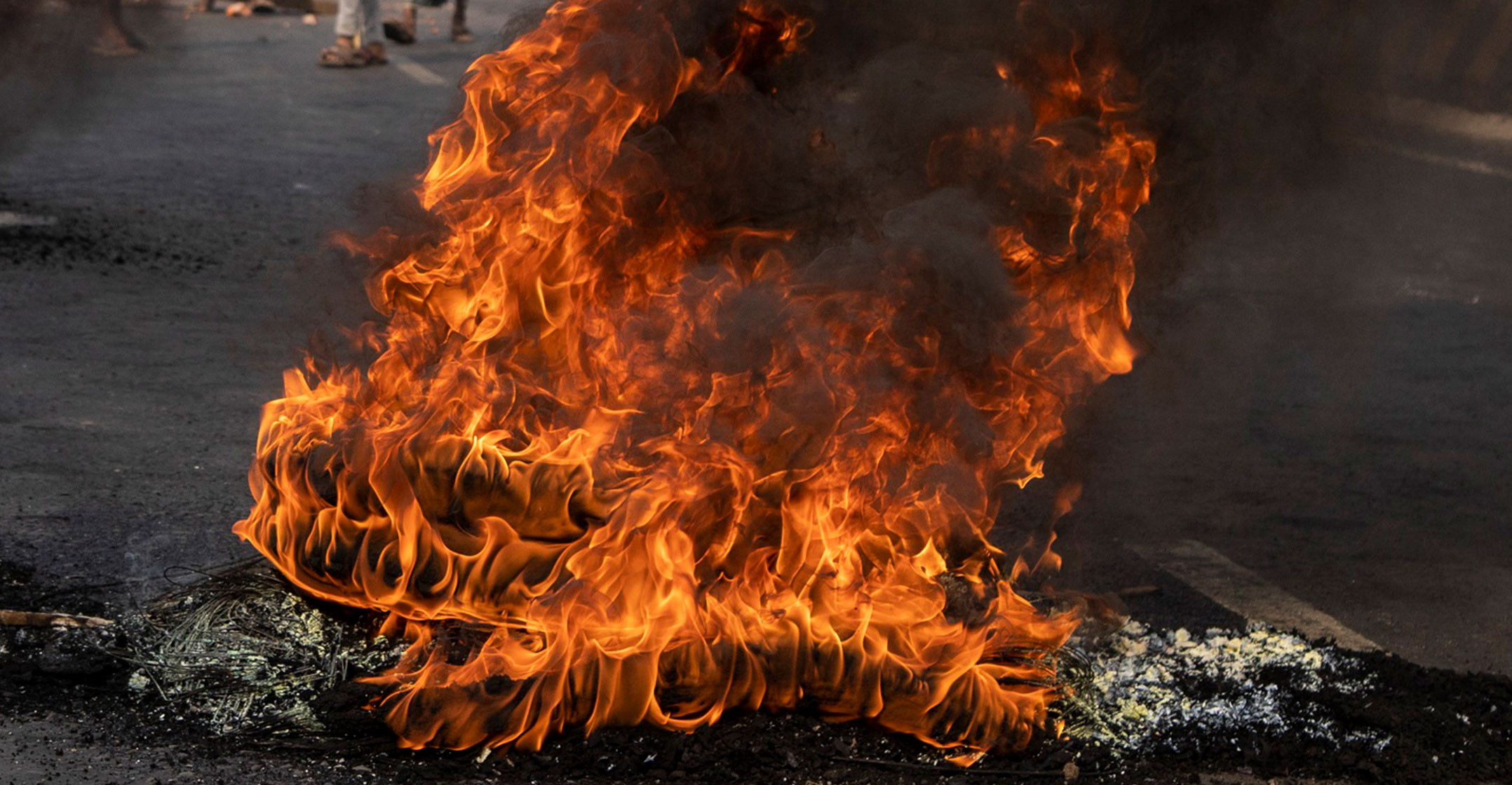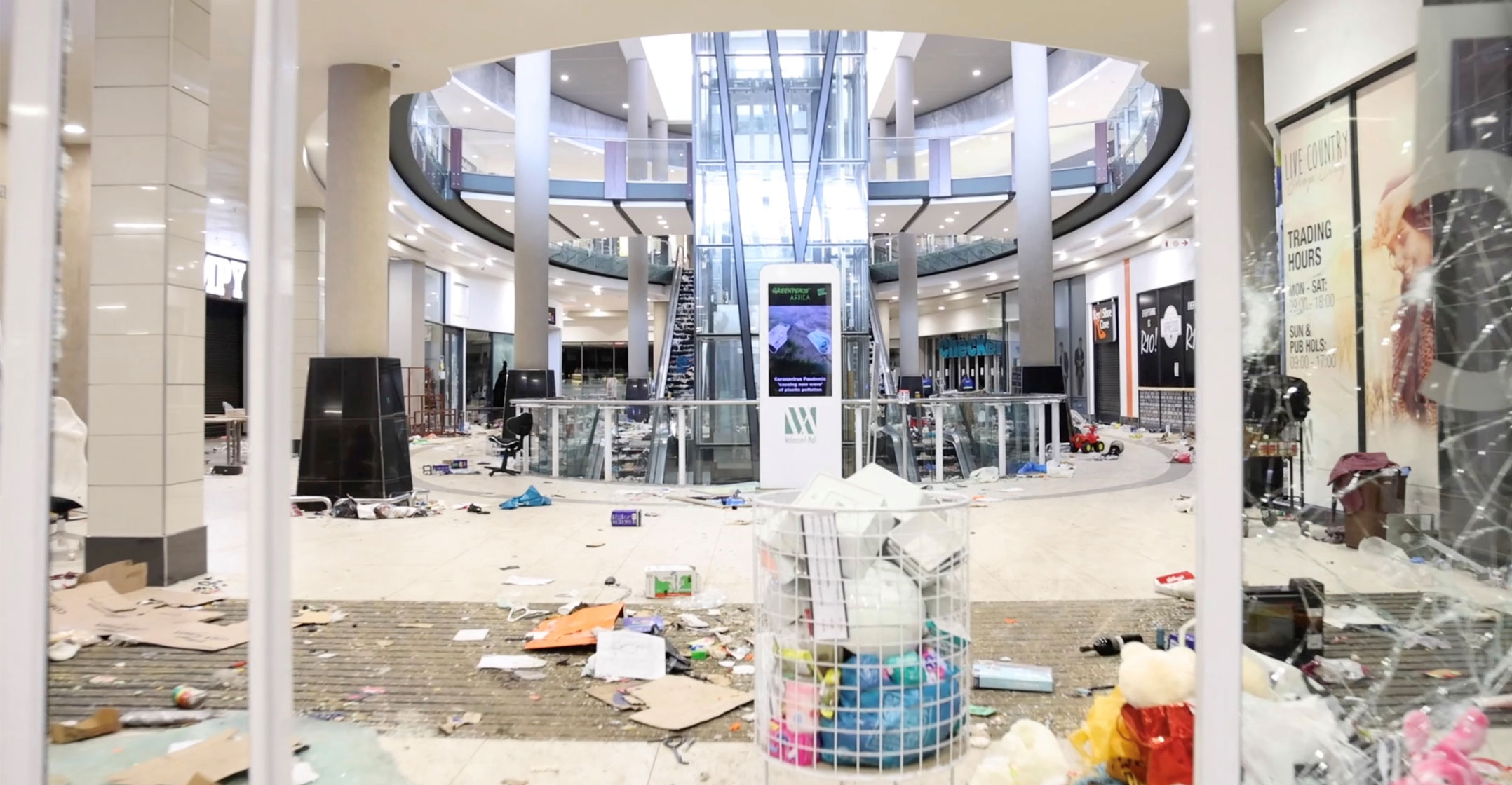 The protests, unrest and massive looting in KwaZulu-Natal has destroyed and disrupted vital transport, logistics, warehouse and distribution facilities in the province.
The protests, unrest and massive looting in KwaZulu-Natal has destroyed and disrupted vital transport, logistics, warehouse and distribution facilities in the province.
This has raised fears of a food shortage and a potential further round of looting by hungry people desperate for essential goods, with major logistics companies reporting significant damage and disruptions to their operations.
State-owned Transnet on Wednesday declared force majeure on the vital Natcor (Natal Corridor) rail link connecting Durban to Gauteng because of the continuing unrest and looting.
This led to Business Unity South Africa (Busa) on Thursday calling for the implementation of a 24-hour curfew in selective and targeted hotspot areas in terms of the provisions of the National State of Disaster and the full deployment of the army and police, including reserve forces.
Busa president Sipho Pityana said the violence and damage to property must be stopped immediately. He said the loss of life and destruction of property is devastating.
Disruption
“We now face disruption to supply chains that are essential for the country’s basic functioning, including energy, food and supplies needed to fight the pandemic. Critical transport networks are unable to function. Sapref, which supplies a third of the country’s fuel needs, has been shut down (temporarily),” Pityana said.
“The Durban port, which is critical to the export and import of goods has been closed with its cold stores severely affected,” he said. “National key points that include manufacturing of chlorine for our water system and explosives for our mining industry are shut down and under threat of invasion.”
Pityana said this is an emergency unparalleled in South Africa’s democratic history and requires the state to take immediate action. He said Busa believes this must include a strongly enforced curfew in specific areas to clear the streets and allow law enforcement to regain control.
#SouthAfrica Inside one of the biggest warehouses in South Africa, that’s been looted during violent protests. This is Value Logistics in Cato Ridge near the N3 freeway between Inchanga & Durban. It supplies major food, electrical and furniture outlets in the country. #eNCA pic.twitter.com/OonVGGLFSS
— Siphamandla Goge (@SiphamandlaGoge) July 15, 2021
“The violence is characterised by contagion as the impunity that is seen in one area emboldens those in others. Without clear and dramatic interventions, contagion will continue. We are concerned state action to date has been inadequate,” he said.
Busa vice president Martin Kingston said thousands of businesses in the overall supply chain have been impacted and affected by what has already happened and Busa does not believe Sasria has the resources to be able to provide that support needed by businesses.
Unconfirmed reports indicate that Sasria, the only insurer in South Africa that provides cover for loss or damage to insured property as a direct result of social unrest, has estimated the damage caused at more than R30-billion.

Busa CEO Cas Coovadia said the short- to medium-term cost is that it is going to take months for the businesses to get back on line, which will have an impact on employment, food security and a number of other issues.
Coovadia referred to the “tinder box” effect of hunger and desperation. He said a critical priority for the government is to open the N3, even if the toll plazas are not open to allow traffic to flow even if the military are guarding the road.
Pityana said a curfew in selected areas is important to provide a sense of security to ensure the reopening of supply chains and accessing of goods, particularly food, to communities that would have been cut off because of what has happened.
Value Logistics CEO Steven Gottschalk said on Thursday it has closed its KwaZulu-Natal operations – Cato Ridge and other depots in Pinetown, including Freightpak (chemicals) and Value Truck/Forklift Rental – and increased security measures at its other depots countrywide in the wake of mob looting and vandalism at its depots in KwaZulu-Natal.
Gottschalk said the Cato Ridge depot is one of the company’s largest hubs and provides storage and distribution to major retail stores and other essential products to many different outlets across South Africa, but was overrun with looters on Monday and trucks were set on fire.
Waves of looters
He said waves of looters thereafter stormed the building in “a well organised military operation”.
“The facility has been vandalised, and the goods in the facility have been mostly stolen, with very little goods remaining. There was so much stock in the warehouse it took three days to empty, with thousands of looters helping themselves on a 24/7 spree,” he said.
Gottschalk said the Value Logistics Cato Ridge hub is a major contributor to KwaZulu-Natal’s socioeconomic wellbeing and any damage or destruction to its operations will cost the province and South Africa severely.
He said the facility not only stores goods but is the hub that transports goods to and from other provinces for distribution in KwaZulu-Natal, while goods from overseas arriving in containers are also rerouted to other provinces in South Africa via the hub. “Hundreds of tons of product flows through this facility daily,” he said.
 Gottschalk added that the Value Truck Rental depot in Pinetown was looted of all office supplies, trucks, forklifts and equipment and the building totally vandalised, but the group’s chemical facility in Pinetown remained unharmed.
Gottschalk added that the Value Truck Rental depot in Pinetown was looted of all office supplies, trucks, forklifts and equipment and the building totally vandalised, but the group’s chemical facility in Pinetown remained unharmed.
He said a company task team is already in an advanced stage of planning to get the Cato Ridge and Pinetown facilities back in operation. “Our estimate is that Value will be fully operational in one month on the proviso that the looting and crime comes to an end,” he said.
OneLogix CEO Ian Lourens said the closure of the N3 has obviously affected and impacted the company’s operations and it has lost “a couple of vehicles” but none of its facilities was damaged.
Lourens said it is critical that there is a free-flow on the N3 because there is a huge build of stock of various types of goods coming through the ports. “You can imagine the rush for the highway when things are open. It’s going to be quite chaotic.”
He said it would be “a good gesture” if the toll plazas were left open to allow for the free flow of vehicles. The transport of agricultural products – including citrus, avocados, bananas and table grapes – to the port for the export market is one of the company’s major lines of business and is time-critical.
Grounded
OneLogix is also big into the transport of liquid bulk, including chemicals, liquefied petroleum gas and acid and cryogenics, including liquified oxygen for industrial purposes and hospitals.
Imperial Logistics executive vice president of corporate affairs and investor relations Esha Mansingh said Imperial has grounded its fleet and operations in high-risk areas, including KwaZulu-Natal and certain parts of Gauteng, to ensure the safety of its drivers and employees and reduce the risk of any further harm to its people and assets.
Mansingh said some of Imperial’s truck drivers were subjected to extremely violent tactics. This included being held at gunpoint to allow rioters to use Imperial’s fleet to block highways in parts of KwaZulu-Natal, resulting in one of the company’s vehicles being destroyed and others being vandalised.

“Certain of our businesses transport critical and essential medical supplies, in addition to other basic needs such as food, and these operations have been disrupted given our necessary decision to ground our fleet on key affected routes,” she said.
“At this stage, our businesses in African countries outside South Africa are in operation. It is not possible to quantify the direct and indirect impacts on the supply chain at this stage.”
Road Freight Association CEO Gavin Kelly stressed that 80% of South Africa’s goods are transported by road and “when trucks stop, South Africa stops”.
- This article was originally published on Moneyweb and is used here with permission



